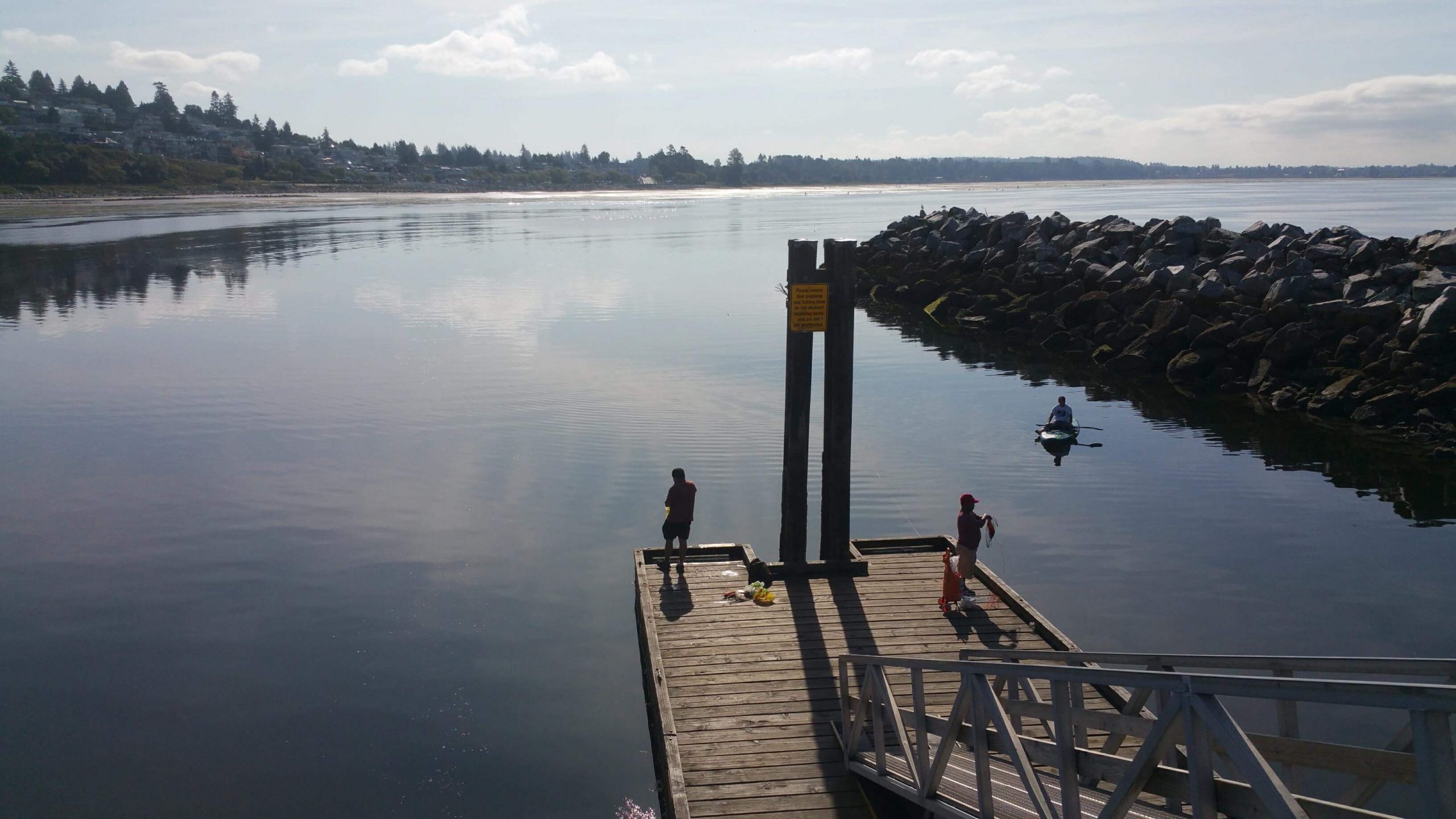Before you make the move from Canada to Florida in the United States, it’s crucial to understand the basics and take the right steps for a smooth transition. Florida, often known as “The Sunshine State” due to its year-round sunny and warm weather, offers a distinctive lifestyle. This includes stunning beaches and renowned attractions like Disney World, Universal Studios, and the Kennedy Space Center, all surrounded by a mix of different neighborhoods and people.
This varied geography, beautiful beaches, and an array of tourist hotspots and cities make Florida’s warm climate even more appealing. If you’re considering moving to Florida, read on to discover what you should know and do before your move, including understanding the cost of living.
Moving to Florida: Everything to know and do
What to know before your move from Canada to Florida
1. First steps before moving to Florida
Visa requirements
Employment Sponsorship
The first thing you need to determine is the reason for your move to the U.S. This decision will dictate the immigration process you must follow. If you’re relocating for the purpose of working in the USA, you’ll have three main categories to choose from. In most cases, your employer will sponsor you for a visa that enables you to live and work in the country. To obtain the appropriate employment authorization through the immigration process, you must be approved for one of the following three items:
- Employment Authorization Card/ Work Permit
- Employment Visa
- Permanent Resident Card/ Green Card
The document you receive depends on the conditions you meet and the duration of your intended work in the U.S.
Business and Investment
If you’re moving to the U.S. to start a business or invest in the country, you will need to acquire a Business Visa or an Investor Green Card. There are various types of business and investor visas available, both temporary and permanent.
- Business Visa: This is the most common immigration document for individuals who intend to start their own business in the U.S. or invest in one. Among the most popular programs for Canadian entrepreneurs are the E-2 and EB-5 visas.
- Investor Green Card: While not all of these visas lead to permanent resident green cards, the EB-5 Investor Visa offers the best chance for obtaining one.
Family Sponsorship
Canadians can obtain a permanent resident green card through marriage or by being an immediate relative of a U.S. citizen. The steps you need to take to apply for a Green Card will depend on your specific situation.
Each of the immigration options mentioned above comes with distinct application requirements. Additionally, when traveling, you’ll need to provide proof of identity. If you’re traveling by air, a valid passport or NEXUS card is required to enter the USA. However, for those entering the USA by road or sea, they must present a Canadian passport along with at least one of the following documents:
- NEXUS Card.
- Enhanced Driving/Identification card.
- FAST Card.
- SENTRI enrollment cards.
To apply for a visa, please visit the provided link for more information.
Finding a job
If you already have a job offer before arriving in Florida, notify your employer, and they will assist with the next steps. Alternatively, consider freelancing if your work can be done remotely. As a Canadian citizen, you can work in Florida; however, you need to obtain the appropriate work authorization or visa to work legally in the United States.
You can also utilize online job platforms like LinkedIn, Indeed, Monster Jobs, or Employ Florida to search for positions. Recruitment agencies and networking can also assist in your job search. The state of Florida offers opportunities in industries such as tourism, construction, healthcare, and education, which are all in high demand for employment.
Getting there
When you’re planning a move to Florida, it’s essential to consider your transportation options. You can access the state by air or by land, with these being the most common methods.
Flying is the most convenient and fastest way, and it’s also the most popular choice. Florida features major international airports, such as Miami International Airport, Orlando International Airport, and Tampa International Airport.
Alternatively, you can opt for a land-based journey, but this involves either hiring an international moving company or driving yourself. In this scenario, it’s important to account for the distance, border crossings, and the necessary documentation.
What should I look for in an International Moving Company?
Choosing between shipping your goods from Canada to Florida by plane or road is a crucial decision. Shipping by plane offers the advantage of speed, but it can be a bit more expensive compared to shipping by road. If you need your items to reach your new location quickly, air shipment is a viable option. On the other hand, if you aren’t in a rush and can wait a few days for the delivery, using truck rental or container services is a practical alternative.
When selecting an international moving company, keep the following factors in mind:
- Conduct thorough research to compare rates among the best international movers.
- Ensure that the chosen mover is licensed and authorized to handle the job.
- Verify they provide insurance coverage for your goods, including accidental and damage insurance.
- Confirm that their claim of delivering quality service is supported by customer reviews.
Some international moving companies specialize in cross-border moves. A couple of movers worth considering are Atlas Van Lines and Metropolitan Movers, to name just a few.
Car shipping to Florida?
If you own a car, you’ll face one of three decisions: sell your car before moving, drive your way across the border, or ship your car. While driving into the U.S. on your own may give you peace of mind that your car is safe with you and not at the mercy of a stranger, you may find a few challenges on the road. Mismanaging your fuel may result in higher costs compared to simply shipping your vehicle. Additionally, there’s a chance you may break down on the side of the road with no assistance. In our opinion, it’s a much easier option to find a trustworthy car shipping company and have your car shipped. This way, you can enjoy a comfortable plane ride, knowing your car is in good hands.
Must dos before your arrival
Moving to Florida can be both exciting and challenging. Being aware of these things beforehand will better prepare you for your new life:
- Conduct research to find the ideal Floridian city for your expat lifestyle, such as Sarasota, Tampa, or Jacksonville, to match your preferences.
- Obtain the suitable visa for your Florida stay, whether temporary or permanent.
- Prepare for Florida’s hot and humid weather by checking local forecasts and packing accordingly, especially if you’re not familiar with the climate.
- Plan ahead by researching and scheduling apartment visits before your arrival to streamline your housing search and ensure a smoother transition.
2. Upon your arrival in Florida
Must dos right upon your arrival
- Familiarize yourself with the neighborhood and note essential emergency numbers.
- Find the nearest hospital, police station, and fire department for safety and emergencies.
- Contact your employer to inform them of your arrival and receive guidance on the next steps.
- If you have school-age children, research Florida’s education system, local schools, and enrollment procedures.
- Know the Florida driver’s license requirements for driving in the state. Explore local transportation options and determine if you need a vehicle.
- Familiarize yourself with the U.S. healthcare system and ensure you have the necessary health insurance coverage for your stay.
Healthcare
Upon moving to the US, obtaining health coverage should be one of your top priorities. To enroll in a coverage program, you must live in the United States and be a citizen/ national (or be lawfully present). Additionally, you cannot be incarcerated.
In the USA, healthcare services are provided by private companies. The government has little to no involvement in this process unless there is an exceptional case, such as disability, unemployment, or living close to or below the poverty level. Citizens themselves are responsible for looking after their well-being.
There are several healthcare programs available for residents of the USA to choose from, including:
- Private medical insurance.
- Medicaid.
- Medicare.
As a Canadian immigrant, we strongly recommend obtaining insurance promptly. New immigrants may consider New Immigrants Health Insurance, offered by companies like Sirius International, Seven Corners, and Lloyd’s Of London. Additionally, you can opt for a Short-Term Health Insurance plan to provide temporary coverage while you travel to and settle in the U.S.
Setting up your cell phone
In Florida, several companies offer mobile phone services, with the three largest operators being T-Mobile, AT&T, and Verizon. If you’re unsure which one to choose, you can start by identifying the one that best suits your basic needs, whether it’s for internet, messaging, or calls.
AT&T offers the strongest overall coverage in Florida and maintains a strong signal whether you are in rural or urban areas. T-Mobile possesses the largest 5G network and provides a solid signal in urban areas but may face challenges in extremely rural areas.
Getting a driver’s license
Obtaining a U.S. driver’s license when moving from Canada involves many steps. Begin by reviewing the specific requirements of the state you’re relocating to and gathering essential identification documents.
For instance, in Florida, as a Canadian, you will typically need to provide your Canadian passport or an original or certified Canadian birth certificate. As well as proof of a Social Security card and proof of a residential address according to the Florida Highway Safety and Motor Vehicles. Remember that it is a must to notify the Florida DMV of your address change.
If you’re a permanent U.S. resident, you might be eligible to apply for a diverse license from your state, allowing you to drive anywhere in the U.S.
However, if you’re not a U.S. citizen yet, you may need an International Driving Permit (IDP) in addition to a driving permit from your home country. For comprehensive information on obtaining your driver’s license, please visit this link.
Setting up a bank account
Setting up a bank account as an immigrant in a new country is essential for financial access. Immigrants often rely on these financial services for sending remittances, cashing checks, and paying bills. The first step you must take is to choose a bank in Florida.
Some major banks in the area include Wells Fargo, Bank of America, Chase, and TD Bank, which is also convenient for Canadians. To open a bank account, you will need certain documentation, although the requirements may vary from one bank to another. Typically, you will need:
- An identification number, such as a valid Canadian passport.
- Proof of your address, like a utility bill or lease agreement.
- Your Canadian Social Insurance Number (SIN).
3. Best places to live in Florida

Living in Florida offers a unique lifestyle, characterized by a sunny and relaxed atmosphere, where residents have a wide range of opportunities for recreation and entertainment.
Florida’s distinctive blend of natural beauty, cultural vibrancy, and job prospects makes it an attractive destination for those seeking to call the Sunshine State home.
|
Cities |
Characteristics |
|
Sarasota |
Home to some of the best beaches on the southern Gulf Coast, with a vibrant arts scene. |
|
Naples |
Located on the Gulf Coast, combining urban living with access to beautiful coastal areas. |
|
Melbourne |
Offers a mix of high-tech industry and beachfront living on Florida’s Space Coast. |
|
Jacksonville |
Florida’s largest city by area, with diverse job opportunities and an active waterfront. |
|
Tampa |
Located on the Gulf Coast, combining urban living with access to beautiful coastal areas. |
Setting up home services
Managing utility expenses in Florida is essential, with costs in line with the national average. Given the hot climate, budgeting for air conditioning is a necessity.
When it comes to internet services in Florida, you have various providers to choose from, including Spectrum, Xfinity, AT&T, Frontier, and COX, offering high-speed connections.
Florida’s top cities for internet connectivity are Miami, Orlando, and Jacksonville, all known for high-speed and fiber internet access, as well as a variety of provider options. Among these, Xfinity stands out as a leading provider, offering speedy plans and a diverse selection of choices.
Should you rent or buy?
The decision to rent or buy in Florida depends on various factors. Florida offers affordable housing, with an average home price of $295,910, but it’s crucial to consider potential weather-related risks, particularly during the late summer hurricane season.
Renting, on the other hand, may provide flexibility and peace of mind in the face of such weather concerns. A 1-bedroom apartment in Jacksonville (outside the city center) costs around $1,278, providing an option for those who prefer a rental arrangement.
Contact a local real estate agent or conduct your own online research to find out the best prices according to your budget.
Home and Auto Insurance
Moving to Florida would also require you to consider home and auto/car insurance. When we talk about auto/car insurance, it is a plan to cover the cost of damage that your vehicle or you may have been subjected to in case of an accident. Although the full cost won’t be paid, a significant portion will be covered. Some factors that define or affect your insurance plan include:
- Car’s model and make.
- Age and gender of applicant.
- Marital status of applicant.
- Credit history.
- City and neighborhood.
Although auto insurance is compulsory in most states, the enforcement of insurance requirements varies. Different types of auto insurance include:
- Liability coverage.
- Uninsured motorist coverage.
- Collision coverage.
- Underinsured motorist coverage.
- Comprehensive coverage.
Home insurance, on the other hand, is not as compulsory as auto insurance but is still considered as essential as health insurance. It serves as a means of protection against damage or loss. If you have a mortgage on the property, chances are that you already have insurance. It safeguards your personal property and home against damage or loss. It also protects the homeowner in case someone gets hurt while on their property.
4. Cost of living in Florida
|
Category |
Monthly cost |
|
1 bed apt rent outside city center |
$1,277.91 |
|
Groceries Numbeo’s grocery list ($63.41 multiplied by 4) |
$253.64 |
|
Utilities Electricity, heating, cooling, water, garbage |
$152.40 |
|
Internet with 60 Mbps |
$43.00 |
|
Transit pass |
$65.00 |
|
Entertainment Meal, taxi, movie |
$84.00 |
|
Gym membership |
$28.66 |
|
Total |
$1,904.61 |
Where can you do the groceries in Florida?
Grocery shopping in Florida is not only convenient but also budget-friendly. In most cities across the state, you can easily find major grocery store chains like Publix, Fresco y Más, The Fresh Market, Whole Foods Market, ALDI, and Trader Joe’s. These well-established stores offer a wide range of options, making it easy to do your groceries and find the products you need at competitive prices.
What to expect from your new life in Florida?
Florida is an exceptionally appealing state in the U.S., and as a Canadian, you’re in for a treat. The state’s remarkable affordability offers excellent value for the experiences it provides.
You’ll relish the favorable climate with warm winters and year-round sunshine, making it ideal for outdoor activities. Florida boasts a wide array of attractions, from world-famous theme parks and beautiful beaches to a diverse cultural scene, ensuring there’s always something exciting to explore.
5. The weather in Florida
Florida and Canada offer different climates, making Florida a seductive choice for those seeking a warmer, sunnier environment, particularly during its summer months when temperatures range from 29 °C to 35 °C.
Florida’s climate ensures year-round outdoor enjoyment, thanks to its mild winters and abundant sunshine, making it a compelling place to live for those seeking a more temperate and comfortable climate.
Each of the major cities in Florida have their own climate characteristics. Miami features a tropical wind climate, while Orlando, Tampa, and Jacksonville all have humid subtropical climates. These cities share mild winters and hot, humid summers with frequent summer rainfall.
6. What to do as a local in Florida
Exploring Florida as a local offers many enjoyable activities. You can relax on famous beaches like Miami Beach, enjoy water activities, visit theme parks such as Disney World, and participate in cultural events like Miami Art Week.
Delight fresh seafood and Cuban cuisine, known for their delicious flavors influenced by the Caribbean. Attend outdoor festivals like SunFest, or simply revel in the state’s natural beauty in places like the Everglades National Park. Florida provides numerous opportunities to embrace the local way of life.
7. Fun facts about Florida
- The name of the state comes from the Spanish term “Pascua Florida” which meaning “Flowery Easter” named by Ponce de León during his discovery.
- Home to a large alligator population, where there are more alligators in the state than there are people.
- Home to the Kennedy Space Center, where NASA launches many of its missions.
- Renowned as the “Theme Park Capital of the World” with attractions like Walt Disney World, Universal Studios, and SeaWorld.
Conclusion
Moving from Canada to Florida offers a great opportunity, thanks to its warm and sunny climate, stunning natural landscapes, cultural diversity, and economic prospects. Whether you’re seeking a dynamic city experience, coastal living, or a peaceful retirement, Florida’s diverse cities cater to a wide range of preferences.
However, it’s crucial to be aware of potential challenges, such as hurricane risks and peak tourist seasons, when considering Florida as your future residence. To prepare for your move to the Sunshine State, conducting research on international moving companies can ensure a seamless and stress-free transition.





